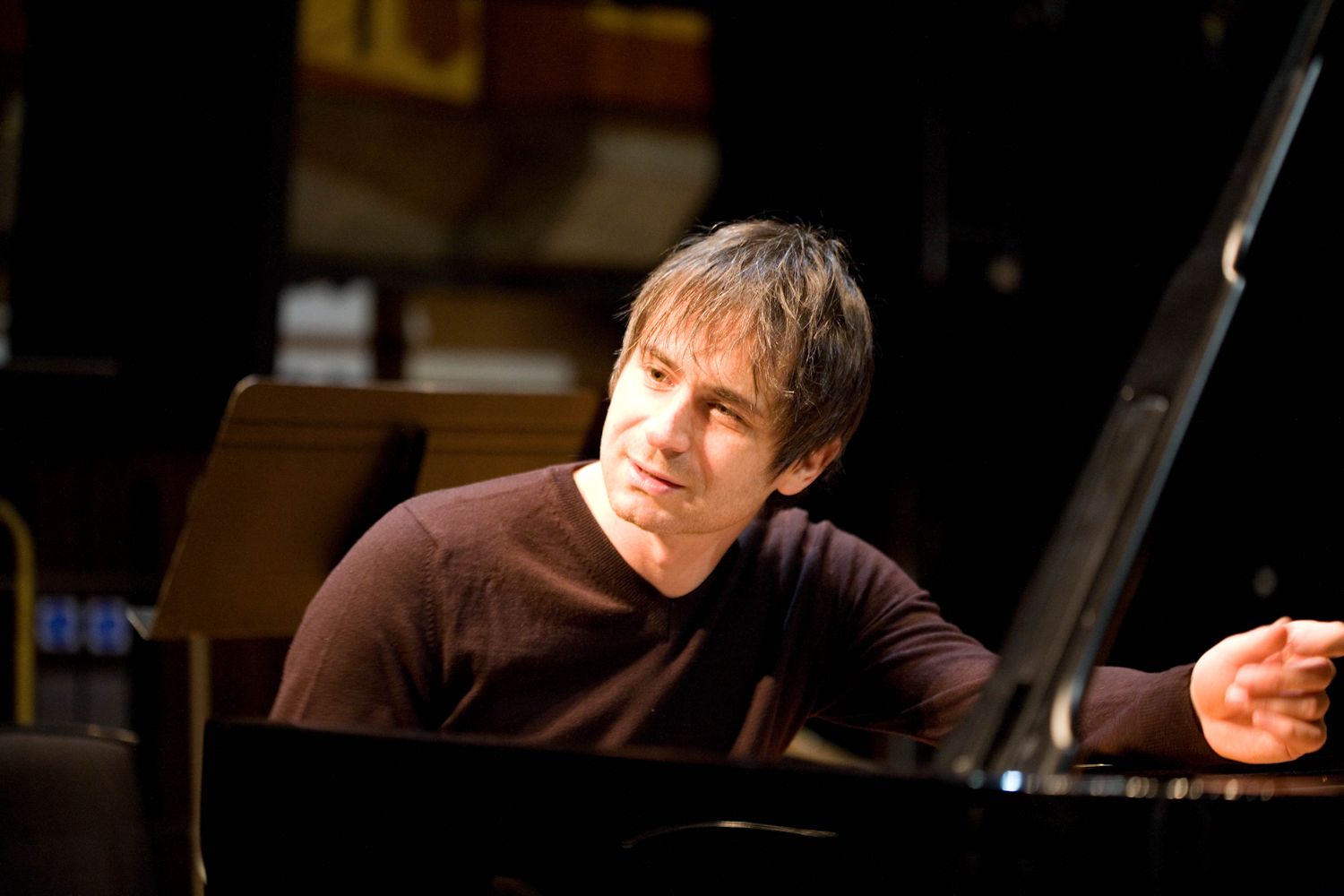The Scottish Chamber Orchestra are giving their final concert of the season at the Queen’s Hall tonight (repeated in the Glasgow Royal Concert Hall tomorrow), before embarking on a big European tour with this programme. So tonight’s concert is, in effect, a rehearsal for the tour, and on the basis of tonight’s performance, it should go down well in Europe. Star of the evening is Piotr Anderszewski, the leading Polish international pianist, who has become an expert not only on Mozart, but on conducting chamber orchestras from the piano, including fifteen years working with the SCO.
It is worth quoting Anderszewski from his latest Mozart recording with the Chamber Orchestra of Europe: “I understand Mozart piano concertos as chamber works. The piano, orchestra, and individual instruments engage with each other, dialoguing continuously. At the same time, these are hidden operas: the musical themes, motives interact, unfolding their stories, each with their own voice and distinctive character.” So we are not only listening to the wonderful limpid playing of the piano, but we are also looking for the operatic themes, and we find quite a few!
The concert begins, in a packed Queen’s Hall, with Mozart’s Piano Concerto No. 17 in G, with Anderszewski conducting from the piano. Anderszewski is a master at the piano, his fingers caressing the keyboard in the quieter passages, and imposing his stamp on the music and the orchestra in louder passages. There are also operatic references in the work. Conrad Wilson, in his programme notes, suggests hints of Don Giovanni in the slow movement, although these aren’t obvious, but the last movement is very much based on the delightful music of Papageno in the Magic Flute.
The concert continues with Poulenc’s Sinfonietta, directed by the orchestra’s leader, Stephanie Gonley. This work was commissioned by the BBC in 1948, and despite its relatively recent origins, it doesn’t display any contemporary character. It is melodic and even romantic at times, and at others it sounds like film music. It is also quite loud, the brass often dominating the strings. There is a nice pastoral third movement before the rather brassy finale. Overall, the music isn’t gripping, but as always it is well played by the SCO.
The concert finishes with Mozart’s sublime Piano Concerto No. 24 in C minor. Beethoven reportedly said, when he heard it, “ah, we shall never be able to do anything like that!” This was Mozart’s last piano work that he performed as a soloist, and there are hints of dark themes in the music: indeed, some call it a tragic concerto. Anderszweski brings this all out beautifully in his playing, and he gets a rousing ovation from the Queen’s Hall audience. The SCO should have a great tour with this programme and this supreme pianist.
